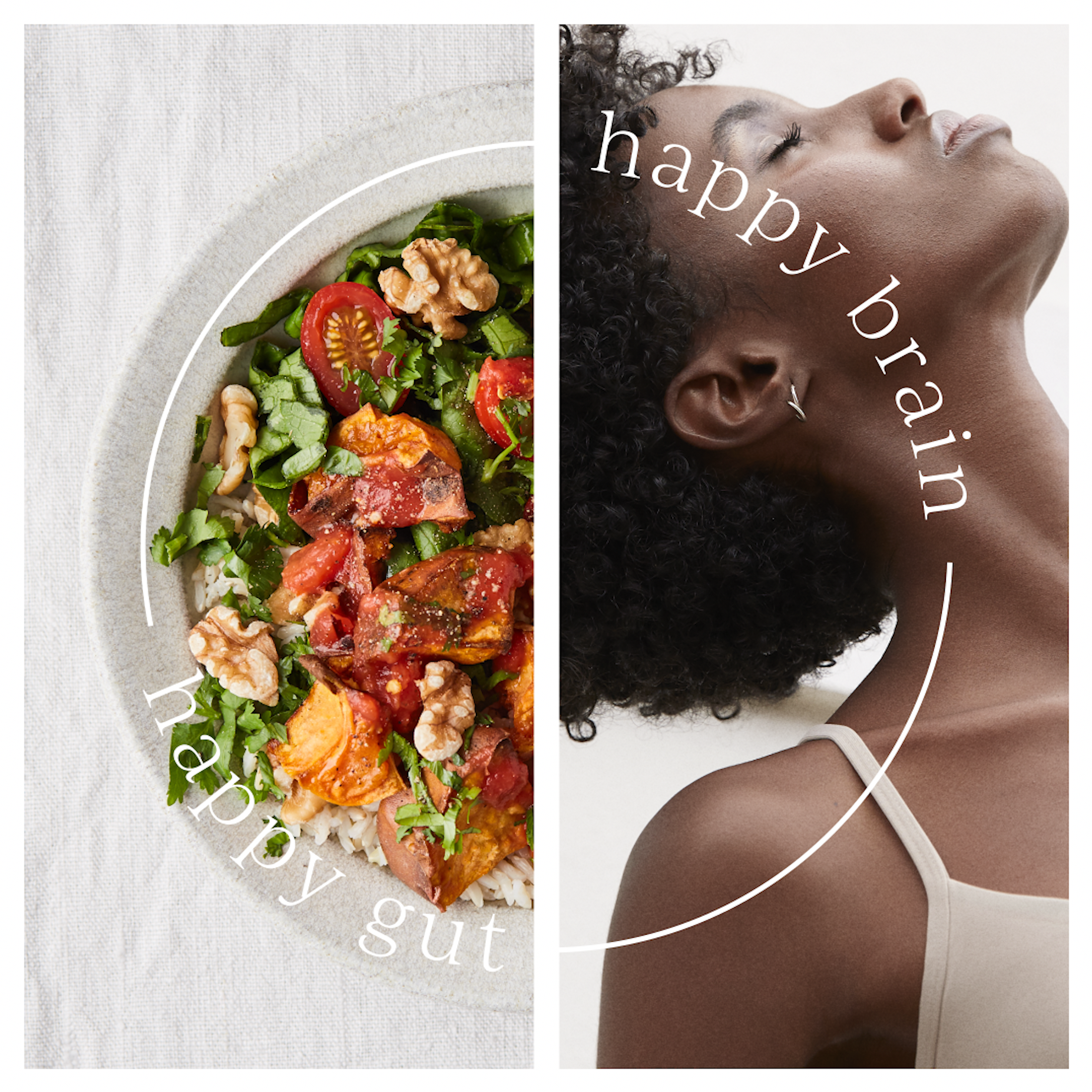09 Oct, 2023
Eve Kalinik on the gut-brain connection
The gut is increasingly being recognised as playing a crucial role in maintaining both our physical and mental health. To get a better understanding of the far-reaching benefits of maintaining a healthy gut and how to support the powerful gut-brain connection, we spoke to Nutritional Therapist Eve Kalinik.
HealthEve Kalinik believes that reconsidering the crucial role of the gut in how we feel both physically and mentally could be a momentous part of helping to support the process of healing the mind. And with our recent collaboration on our menu and The 10-Day Gut Reset, inspired by her book 'Happy Gut, Happy Mind', who better to speak to about all things gut health and the gut-brain axis.
First things first, if you are unsure of exactly what our ‘gut’ is, have a read of our “Lowdown on the Gut” blog post, here, first.

Can you introduce in simplest terms why the gut-brain connection is so important?
What was once thought of as a top down (brain to gut) communication is actually more of a bidirectional relationship – and it is a significant one. It is evident that we cannot support the body, notably the gut, without factoring in how we nourish our mind, and vice versa. And we now know it is our gut microbiota (collectively the trillions of microbes that live in our gut) that has a highly influential role in how our brain operates.
When we talk about the gut-brain relationship, really, we should think of it as a relationship between the microbiota, the gut and the brain. A lot of the communication between our gut and brain depends on the ‘chatter’ from these trillions of microbes in our gut.
Just as the brain contains billions of communicating nerve cells, the gut also houses a huge 500 million and communicates to the rest of the body in a similar manner. One of the main pathways that our microbes, gut and brain use to ‘speak’ is via the nerve pathway, using chemical messengers called neurotransmitters. The microbiota makes, manages and communicates using the same neurotransmitters as the brain. So, the same neurotransmitters that govern different physical processes and emotions occur in the gut as well as the brain. As such these neurotransmitters can have a significant influence on both our physical and mental wellbeing.
So, the neurotransmitters produced in our brain and secreted and managed by our gut are the main ‘language’ used, can we look at them in a bit more detail.
Think of neurotransmitters like ‘chemical messengers’, that we commonly associate with our brain. However what is often surprising for many people is knowing that our gut produces some of the same that our brain does! When you look at the statistics and begin to understand how much of these neurotransmitters the gut microbiota produces it is pretty astonishing. For example, what a lot of people don’t know is that 90-95% of the body’s overall production of the neurotransmitter serotonin, dubbed the “happy neurotransmitter”, is produced and managed in the gut.
Serotonin plays a huge role in mood and cognition in our brain, and in the gut it is related to processes such as motility through the digestive system. Our gut microbiota can directly and indirectly influence serotonin levels. Serotonin is produced in special cells called EC cells that sit on the lining of our gut, and it essentially depends on the microbes in our gut to ‘switch them on’ which produces serotonin available peripherally in the body. With serotonin in the brain, the gut can have an influence here too since microbes in our gut may also have some control over the availability of the precursor amino acid tryptophan, which crosses the blood-brain-barrier that is converted into serotonin in the brain.
We need to take in the amino acid tryptophan through our diet. It can be found in a wide variety of protein-rich foods, such as turkey, chicken, eggs, oily fish, and pumpkin seeds.
Another neurotransmitter, dopamine, is also produced in our gut, in fact 50% of our overall dopamine is produced in our gut. In the brain, dopamine is associated with pleasure and the reward system, but it also has a role to play in the functioning of our gut. Like gut-derived serotonin, our gut microbes can influence the amount of the precursor amino acid used to make dopamine in the brain. When we consider that at least half of dopamine is produced in the gut, it again emphasises the role that our microbiota can play whether directly or indirectly in supporting the health of our brain.
-
In order to maintain a happy gut, and seemingly, a happy mind, we must look at our diet as well as external factors such as stress-management. We’ve designed our 10-Day Gut Reset plan to help with just that. Find out more here.




